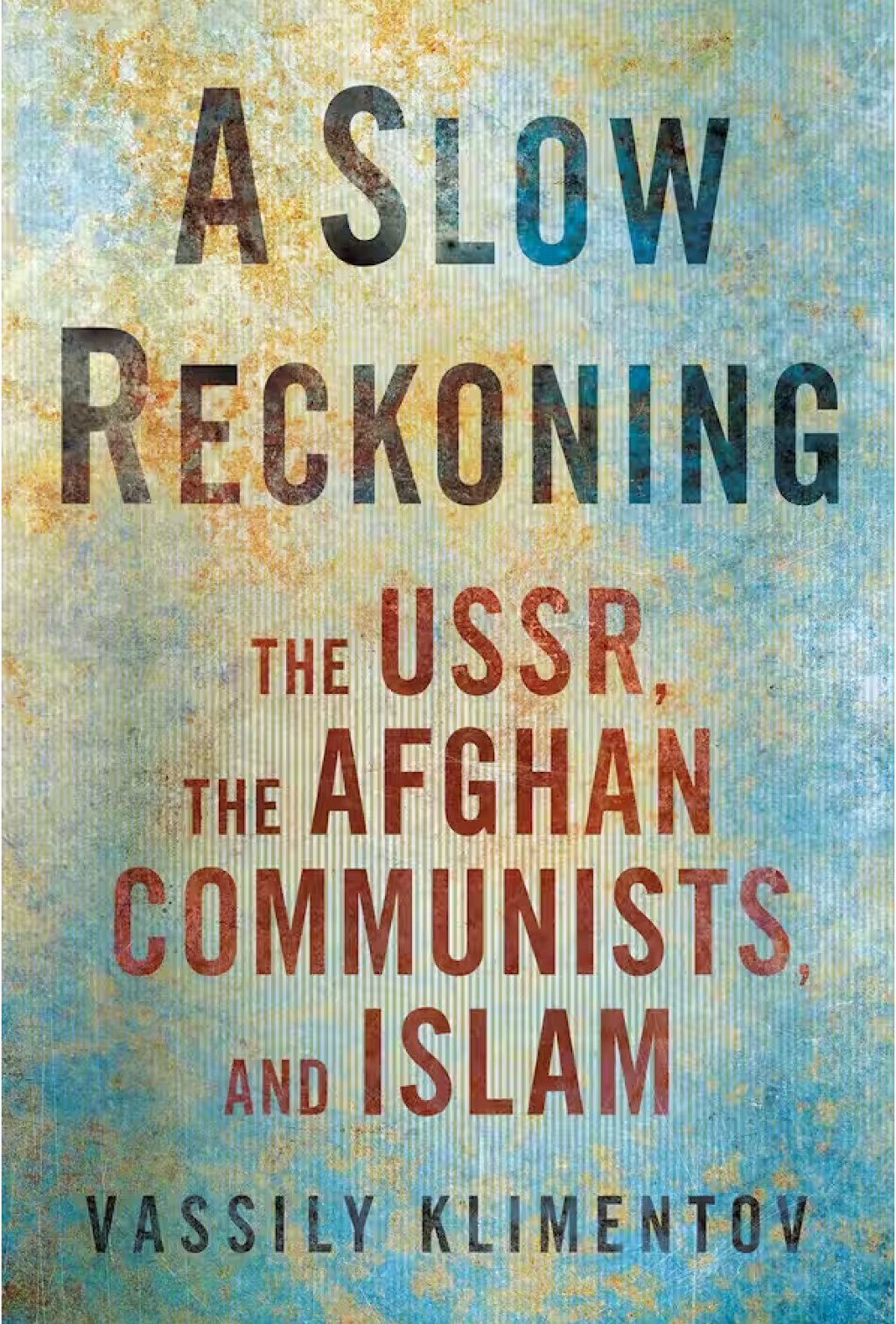Vassily Klimentov is a Swiss National Science Foundation Postdoctoral Fellow and Lecturer at the University of Zurich. He is the author of A Slow Reckoning: The USSR, the Afghan Communists, and Islam (Cornell UP, 2024). His current research project is entitled “Between the Domestic and the Foreign: Islam and the Making of Modern Russia.”
My recent book, A Slow Reckoning, examines the USSR's and the Afghan communists' views of, and policies toward, Islam during the Soviet-Afghan War (1979-89). It reveals how the Soviet and communist Afghan disregard for Islam was telling of the radicality of their approach to reforming Afghanistan, helping explain the failure of their jointly undertaken modernization project. A Slow Reckoning, moreover, shows how the Soviet elites never fully conceptualized Islamism, seeing it—mostly rightly, as it turned out—as an ideology that would not appeal to progressive Soviet Muslims.
The book is part of the current re-assessment of the Soviet-Afghan War. With new archives opening in Russia (before the invasion of Ukraine), the United Kingdom, the United States, and other countries, and an increased number of scholars relying on oral history techniques, this new historiography has re-situated the conflict amid multiple concurrent global, regional, and national histories in the 1980s. The history of the Soviet-Afghan War thus notably connects to the history of the constitution of the nascent Muslim world, the rise of Islamism from Iran to Afghanistan, the longue durée history of Afghanistan and Central Asia, competing communist and Western development projects during the Cold War, and superpower-to-client relations in so-called Third-World countries. As Elizabeth Leake’s recent book, Afghan Crucible, showed, it is possible to write a truly global history of the Soviet-Afghan War.
Regarding Soviet history, scholars like Yaacov Ro’i in his recent monograph The Bleeding Wound, increasingly understand the Soviet-Afghan War in conjunction with domestic issues in the Soviet Union. Discarding the simplistic narrative that the conflict was mostly notable for accelerating the Soviet collapse by placing an economic and military burden on the USSR, they instead show how the war influenced many aspects of Soviet life.
In my book, I similarly look at the Soviet-Afghan War’s impact in the USSR. I discuss how the war influenced the Soviet authorities’ relation to Muslims in the Soviet Union. In Afghanistan, Kremlinpolicymakers came into conflict with Islam for the first time since the Basmachi revolt in 1920s Centra Asia. Old party bureaucrats in the Politburo, mostly ethnic Russians, had little idea about religion, especially Islam, prior to the start of the war. As Andrei Gromyko, the Soviet Minister of Foreign Affairs, wrote in his memoirs: “Was there another religious cult that could compare with Islam in the power of its magnetism? Would anyone dispute that Islam, therefore, created the most fanatics?” To people like Gromyko, Islam was an archaism—an ideology bound to disappear.
“Was there another religious cult that could compare with Islam in the power of its magnetism? Would anyone dispute that Islam, therefore, created the most fanatics?”
Such perceptions colored the Soviet approach to Islam, pre-determining the failure of the Soviet state-building and modernization projects in Afghanistan. In parallel, this dismissive approach to Islam determined the Soviet Politburo’s relationship with Soviet Muslims. The Soviet decision-makers assumed religion had died out and that Soviet Muslims had retained it as only a cultural factor. They therefore long did not develop any fear regarding an Islamist penetration from Afghanistan into Soviet Central Asia. To them, Islamism could not appeal to progressive Soviet Muslims.
This worldview resulted in a double misconception. On the one hand, the Soviet Politburo was wrong about Islam in the Soviet Union. As Eren Tasar has shown in Soviet and Muslim, and as other scholars confirm, while Islam had left the public sphere in Central Asia under pressure from atheism campaigns, it had endured in the private sphere. It had considerable vitality in Soviet Muslim societies. As Soviet leaders discovered in the 1980s, their perception of religion as having disappeared from the USSR had been strategically encouraged by local Communist Party apparatchiks operating in Soviet Muslim regions. In Central Asia and in the North Caucasus, communist party officials, some ranking as high as Party heads, practiced Islamic rituals while reporting to Moscow that Islam was dying out. This discovery truly shocked several Politburo members, forcing them, by the late 1980s, to rethink the threat of Islamism spreading over to Central Asia.
On the other hand, the Soviet Politburo, for all its blindness about the state of Islam in the Soviet Union, proved right about one thing. Soviet Muslims had, in their large majority, become good communists. They were not interested in contesting Soviet power. In Afghanistan, the Soviet Muslims deployed in the military and as advisers overwhelmingly assumed the role of perfect ambassadors according to the Soviet model. The Islamist circles that appeared in Central Asia after the mid-1980s were more interested in getting the Soviet authorities to leave them alone than in opposing them. Eventually, although several nationalist protests with Islamic undertones happened in Central Asia in the 1980s, the region was not at the vanguard of the wave that led to the Soviet collapse. Instead, Russian, Ukrainian, and Baltic nationalisms accelerated the fragmentation. Central Asia seemed, by contrast, long ready to stay as part of the Soviet Union. In that sense, the Western Cold Warriors who believed that Islam would bring about the end of the USSR were proven wrong.
More research is needed to explore Moscow’s relation to Islam at home and abroad, connecting the Soviet and post-Soviet eras. That connection beyond the Cold War is important because, eventually, Islam and Islamism emerged in the post-Soviet space as ideologies of contestation during the wars in Tajikistan and, especially, Chechnya. Exploring Moscow’s relation to Islam at home and abroad over a longer period is one of the objectives of my current research project at the University of Zurich.



